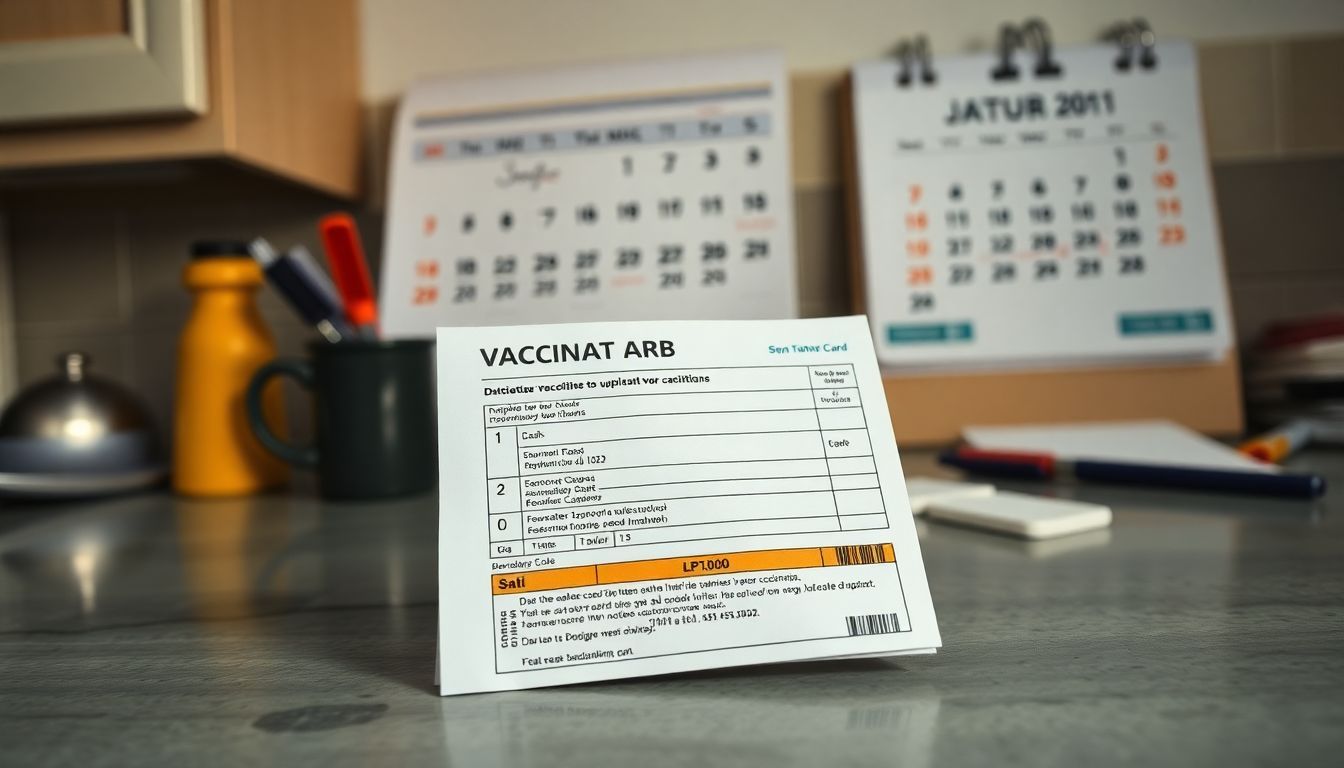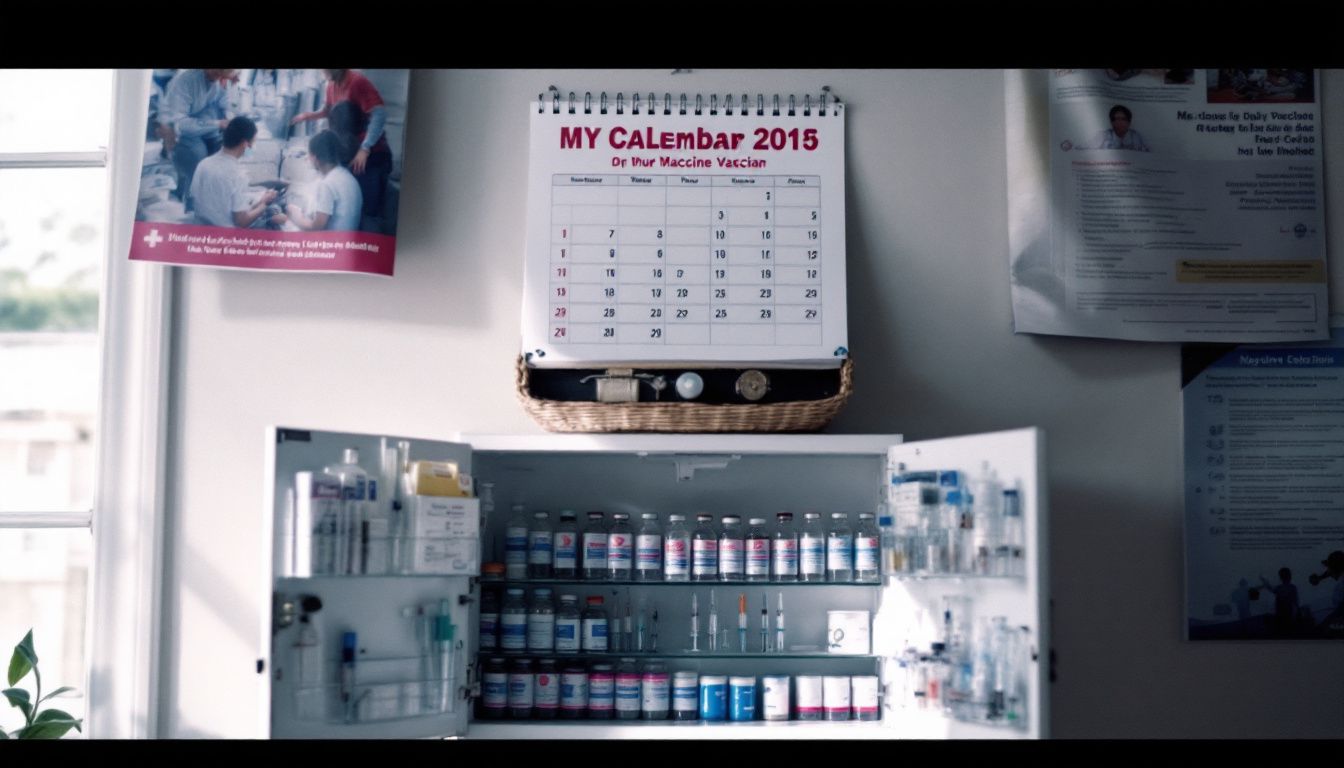Many women wonder which vaccines they need before, during, and after pregnancy. Vaccines protect both moms and babies from serious diseases like measles or the flu. This guide explains the key vaccinations for each stage of motherhood and why they matter.
Thank you for reading this post, don't forget to subscribe!Keep reading to learn how you can stay healthy for yourself and your baby!
Key Takeaways
- Women should get the MMR and varicella vaccines at least one month before pregnancy to prevent birth defects caused by rubella or chickenpox.
- The Tdap vaccine during weeks 27-36 of pregnancy protects babies from whooping cough until they can be vaccinated.
- Flu shots are safe during all trimesters and protect both mother and baby from severe flu complications like pneumonia.
- Postpartum moms should get missed vaccines, including Tdap, flu, or COVID-19 shots, to pass protective antibodies to their newborns through breast milk.
- Vaccines given in pregnancy, like Tdap and flu shots, use inactivated viruses and are carefully monitored for safety by health organizations like the CDC.
Pre-Pregnancy Vaccinations
Women should update certain vaccines before becoming pregnant. This helps protect both the mother and future baby from serious diseases.
MMR (measles, mumps, rubella) vaccine
The MMR vaccine protects against measles, mumps, and rubella. Rubella can cause serious birth defects if caught during pregnancy. These defects include congenital rubella syndrome, which may lead to vision, hearing, or heart problems in the baby.
Doctors recommend this vaccine before pregnancy. It uses a live attenuated virus and is not safe for pregnant women. If you need it, get vaccinated at least one month before trying to conceive.
This step helps ensure disease prevention for both you and your future child.
Next up: Varicella (chickenpox) vaccine…
Varicella (chickenpox) vaccine
Varicella vaccine protects against chickenpox. This disease can cause severe complications if caught during pregnancy. Women planning to conceive should ensure vaccination before conception.
If a pregnant woman gets chickenpox, it may lead to congenital varicella syndrome, causing birth defects.
The CDC recommends getting the varicella vaccine at least one month before trying for a baby. Varivax is the common name for this shot. Chickenpox spreads easily and may increase risks of preterm birth or pneumonia in pregnant women.
Next, let’s discuss vaccinations needed during pregnancy….
Tdap (tetanus, diphtheria, and pertussis) vaccine
The Tdap vaccine protects against tetanus, diphtheria, and pertussis (whooping cough). It is crucial for women planning pregnancy. Pertussis can cause severe illness in newborns. The vaccine helps transfer maternal antibodies to the baby, offering passive immunity after birth.
Pertussis cases have been rising in recent years. To reduce risks, the CDC recommends getting a Tdap shot every 10 years or during each pregnancy. This booster also shields you from tetanus toxoid-related infections caused by cuts or injuries.
Obstetricians and gynecologists often include it in vaccination schedules to ensure long-term protection.
Whooping cough prevention starts before your baby’s first breath.
Vaccinations During Pregnancy
Pregnancy can lower your immune system, making you more vulnerable to infections. Certain vaccines help protect both the mother and baby during this time—keeping them safe from serious illnesses.
Flu vaccine
The flu vaccine helps protect against influenza. Pregnant women face higher risks during flu season, with severe complications like pneumonia and hospitalization. The CDC recommends the inactivated influenza vaccine for all pregnancies, regardless of trimester.
It boosts maternal antibodies that shield both mother and baby after delivery.
Influenza vaccination is safe and effective. Side effects are mild—like soreness or flu-like symptoms—and do not harm your pregnancy or baby. Vaccinating decreases respiratory issues caused by the virus and reduces hospital visits during outbreaks.
Talk to your provider about getting vaccinated on time!
Tdap vaccine
Tdap vaccine protects against tetanus, diphtheria, and acellular pertussis (whooping cough). Doctors recommend it during the third trimester of pregnancy, preferably between 27-36 weeks.
This timing helps boost maternal antibodies, which pass to the baby before birth. These antibodies provide temporary protection until the newborn can get their own vaccines.
Whooping cough is dangerous for infants. Babies too young for vaccination rely on this early protection from their mothers. The Centers for Disease Control and Prevention (CDC) stresses its importance as part of routine vaccinations during pregnancy.
Safe to receive while pregnant, Tdap reduces serious risks like infant hospitalizations or death caused by pertussis exposure shortly after delivery.

Importance of Postpartum Vaccination
Postpartum vaccines protect both new mothers and newborns. For women who missed the Tdap vaccine during pregnancy, it is important to receive it after giving birth. This helps prevent pertussis (whooping cough) in infants, as they can’t be vaccinated until two months old.
The mom’s vaccination creates maternal antibodies that pass through breast milk, providing protection for the baby early on.
Flu and COVID-19 vaccines are highly recommended if not taken during pregnancy. They lower risks of severe illness from respiratory infections for both mother and child. Hepatitis A and B vaccinations may also help reduce vertical transmission of these viruses to babies at birth or soon after delivery.
Doctors stress open communication about a woman’s vaccination record to ensure she stays protected postpartum while caring for her child.
Safety and Monitoring of Vaccines During Pregnancy
Vaccines given during pregnancy are tested for safety. Researchers carefully study these vaccines to protect both the mother and baby. Vaccinations, like the flu vaccine and Tdap, use inactivated viruses or parts of bacteria, which cannot cause infections.
This makes them safe options. For example, getting a Tdap shot protects babies from pertussis (whooping cough) after birth.
Health organizations monitor vaccine effects closely. Groups like the CDC and Advisory Committee on Immunization Practices (ACIP) recommend which shots are safe during pregnancy based on new data.
Monitoring systems track side effects to ensure vaccines remain effective and low-risk for everyone involved.
Conclusion
Taking care of your health through vaccines is key for you and your baby. Before, during, and after pregnancy, the right immunizations offer strong protection. Talk to a doctor about what you need at each stage.
Staying informed keeps you safe and helps build a healthier future for everyone.
